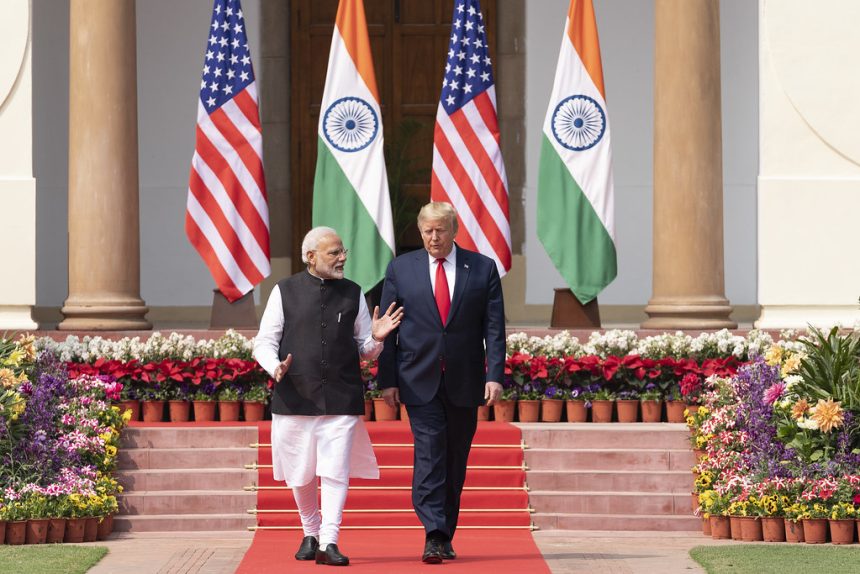Trump’s Tariff Threat Over Russian Oil
U.S. President Donald Trump recently escalated tensions with India, issuing a warning that he may impose tariffs of up to 100% on countries importing Russian oil. India faces the threat of higher duties after Trump accused it of purchasing “massive amounts” of discounted Russian crude and allegedly reselling it for “big profits.” Already in place is a 25% tariff on Indian exports to the U.S., imposed by Trump earlier this month, triggered in part by India’s continued trade with Russia and its BRICS alignment.
India’s Ministry of External Affairs Response
In a formal statement, India’s Ministry of External Affairs (MEA) strongly rejected Trump’s criticisms, calling them “unjustified and unreasonable.” The MEA emphasized India’s sovereign right to secure energy in line with national interests and energy security requirements.
The MEA stressed that India began sourcing Russian oil when traditional exporters redirected supplies to Europe post-Ukraine war, a shift that New Delhi deemed a “necessity compelled by the global market situation”. The MEA also noted that the U.S. and EU had initially encouraged India’s imports of Russian crude to support global energy market stability.
Highlighting Western Double Standards
India explicitly pointed out the hypocrisy in Trump’s criticism, reminding critics that both the U.S. and European Union continue significant trade with Russia—while simultaneously condemning India. For instance:
- EU-Russia trade in 2024 included €67.5 billion in goods and €17.2 billion in services in 2023, exceeding India’s total trade with Russia for those years.
- EU imports of Russian LNG reached a record 16.5 million tonnes in 2024, surpassing the 15.21 million tonnes recorded in 2022.
- U.S. imports from Russia include uranium hexafluoride for its nuclear sector, palladium for EVs, fertilizers, and chemicals.
The MEA asserted that while India’s energy imports are rooted in necessity, Western nations’ similar dealings lack comparable justification.
Strategic Independence Amid Trade Strain
Despite mounting pressure, India signalled no change in its strategy regarding Russian oil imports. Government sources reiterated that long-term contracts cannot be halted abruptly and noted that discounts had recently narrowed—prompting fewer new purchases—but without altering policy.
India vowed to take “all necessary measures to safeguard its national interests and economic security,” reinforcing its position as a non-aligned nation committed to independent decision-making.
Impact on U.S.–India Relations
These developments mark a sharp friction point in the U.S.–India diplomatic and economic relationship. Trust between the two nations has been strained by Trump’s aggressive rhetoric, sudden policy shifts, and what many in New Delhi view as an unpredictable approach to global alliances and trade.
Analysts warn that Trump’s overtures towards Pakistan—including recent trade and oil deals—have further deepened New Delhi’s distrust toward Washington, potentially jeopardizing long-term strategic partnerships.
India’s firm rebuttal to Trump’s latest tariff threats underscores a broader geopolitical positioning: balancing domestic imperatives against external pressure, while navigating an increasingly complex alliance system. As New Delhi reaffirms its independent foreign policy, the ramifications of this clash may redefine U.S.–India relations in the near term.











